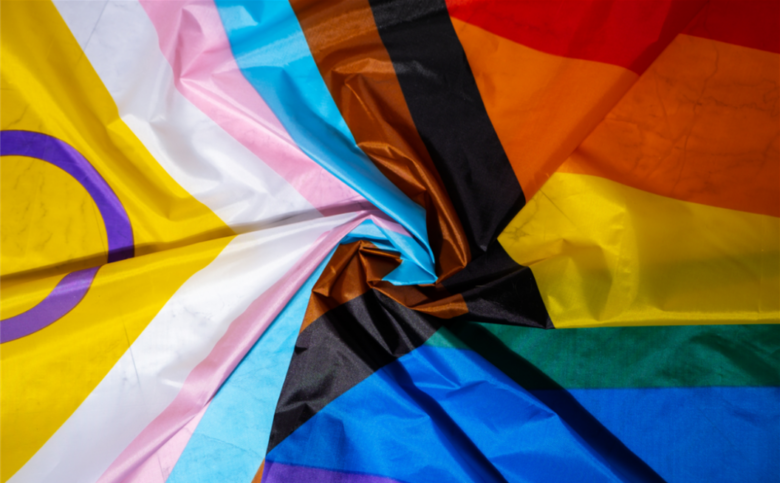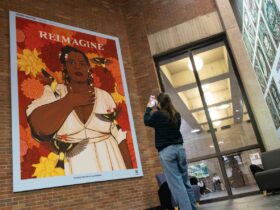The Libraries celebrate LGBTQ+ History Month, recognized throughout the month of October, with this list of recommended books in our collections. LGBTQ+ History Month recognizes the history and achievements of lesbian, gay, bisexual, trans, queer and others with related identities. The month coincides with OUTober, Binghamton University’s Pride month. Our list highlights nonfiction that addresses achievements, experiences and research by and about queer individuals and allies. We encourage you to read works about LGBTQ+ history throughout the year!
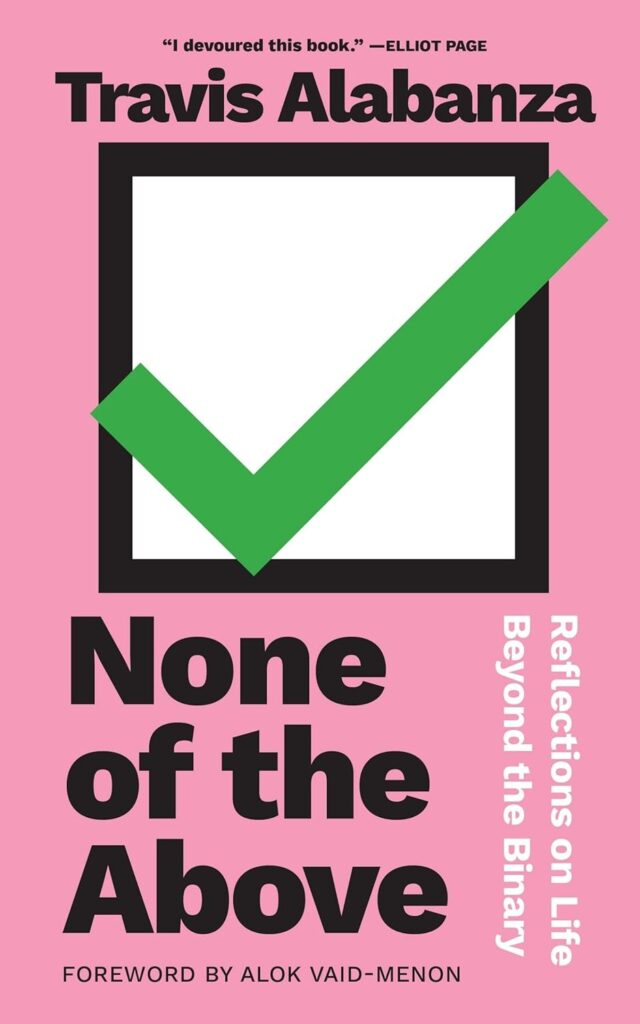
None of the Above : Reflections on Life Beyond the Binary
by Travis Alabanza
In None of the Above: Reflections on Life Beyond the Binary, Travis Alabanza considers seven phrases people have directed at them throughout their life. These phrases—some deceptively innocuous, some deliberately loaded or violent, some celebratory—have fundamentally shaped Alabanza, both for better and for worse. But these phrases also illuminate broader issues about a world that insists on gender as a fixed identity.Alabanza considers the meaning of gender, and the role it plays in a world that rigidly and aggressively enforces the binary. Drawing from their experiences as a racialized queer person, Alabanza deftly interrogates our current frameworks around identity with nuance, openness, and humor. The result is a meditation on doubt and language that turns a mirror back on society, and on ourselves. By heralding transformative futures, None of the Above questions what we think we know—and shares new ways that we might live.
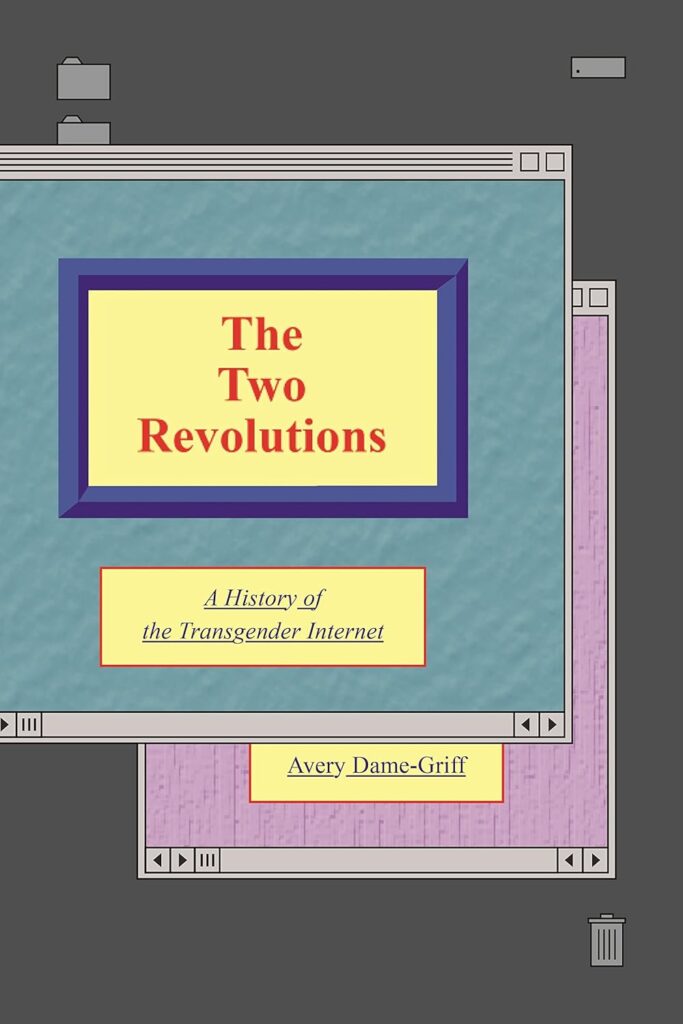
The Two Revolutions : A History of the Transgender Internet
by Avery Dame-Griff
The internet origins of the American transgender movement The Two Revolutions explores how the rise of the internet shaped transgender identity and activism from the 1980s to the present. Through extensive archival research and media archeology, Avery Dame-Griff reconstructs the manifold digital networks of transgender activists, cross-dressing computer hobbyists, and others interested in gender nonconformity who incited the second revolution of the title: the ascendance of “transgender” as an umbrella identity in the mid-1990s. Dame-Griff argues that digital communications sparked significant momentum within what would become the transgender movement, but also further cemented existing power structures. Covering both a historical period that is largely neglected within the history of computing, and the poorly understood role of technology in queer and trans social movements, The Two Revolutions offers a new understanding of both revolutions-the internet’s early development and the structures of communication that would take us to today’s tipping point of trans visibility politics. Through a history of how trans people online exploited different digital infrastructures in the early days of the internet to build a community, The Two Revolutions tells a crucial part of trans history itself.
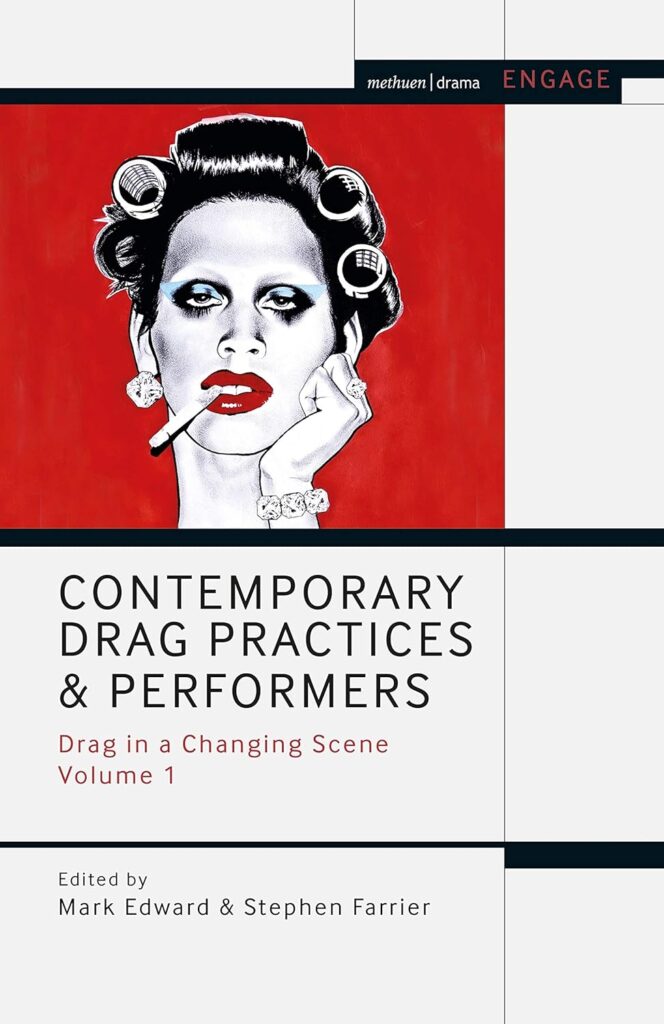
Contemporary Drag Practices and Performers: Drag in a Changing Scene
edited by Mark Edward and Stephen Farrier
In recent years drag performance has moved from the fringes to emerge as a mainstream phenomenon, showcased on TV shows in the US and the UK.
This collection offers a diverse range of critical engagements by drag performers, makers, scholars and writers reflecting on work from the UK, USA, Israel, Germany and Australia. Moving beyond discussions of gender theory, the essays consider contemporary drag performance practices, connecting them to the histories, communities and politics that produced them.
Chapters range across discussions of drag kings in the US, UK and drag and activism; the influence of RuPaul on the generation of new forms of work in New York; transfeminist critiques of drag; ‘bio’/faux queens; engagements with race and ethnicity through drag performance; drag andragogy; audience concerns; drag intersections with animal personas, and how drag performance relates to personal narratives of history and identity.
Collectively the contributions focus on drag as a mode of performance that is diverse and that uncorsets the easy thought that drag is simply a cross dressing man in a dress or a woman in a suit.
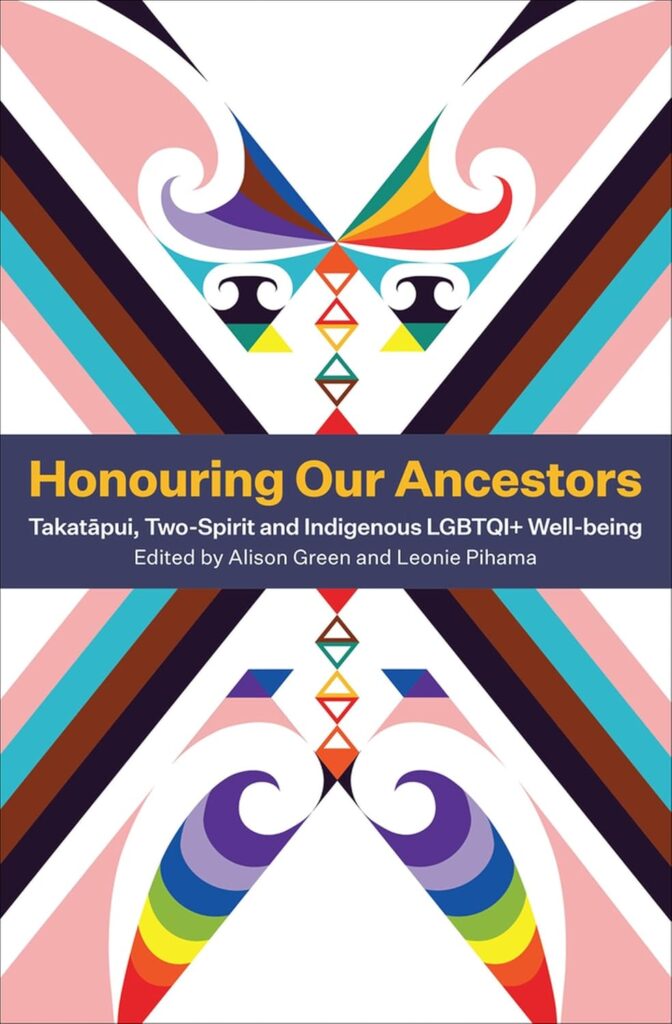
Honouring Our Ancestors : Takatapui, Two-Spirit and Indigenous LGBTQI+ Well-Being
by Allison Green
In these rigorous and challenging essays, writers from Aotearoa and Turtle Island (Canada and the United States of America) explore the well-being of takatapui, two-spirit, and Maori and Indigenous LGBTQI+ communities. Themes include resistance, reclamation, empowerment, transformation and healing. Central to Honouring Our Ancestors is the knowledge that, before colonisation, Indigenous peoples had their own healthy understandings of gender, sexual identities and sexuality. Some of these understandings have survived the onslaught of colonisation; others require decolonisation so that our Indigenous nations can begin to heal. Through this lens, the writers gathered here contribute their knowledge and experience of structural and social change.This collection was inspired by two major research projects: the HONOR Project, which investigated well-being in American Indian and Alaskan Native two-spirit communities, and the Honour Project Aotearoa, which investigated Kaupapa Maori strengths-based understandings of the health and well-being of takatapui and Maori LGBTQI+ communities.Edited by Alison Green and Leonie Pihama, Honouring Our Ancestors upholds the independent authorities and languages that distinguish our Indigenous nations and celebrates the relationships that bind us. Decolonised Indigenous knowledges are offered as a wellspring of unlimited potential for Indigenous communities and nations everywhere.
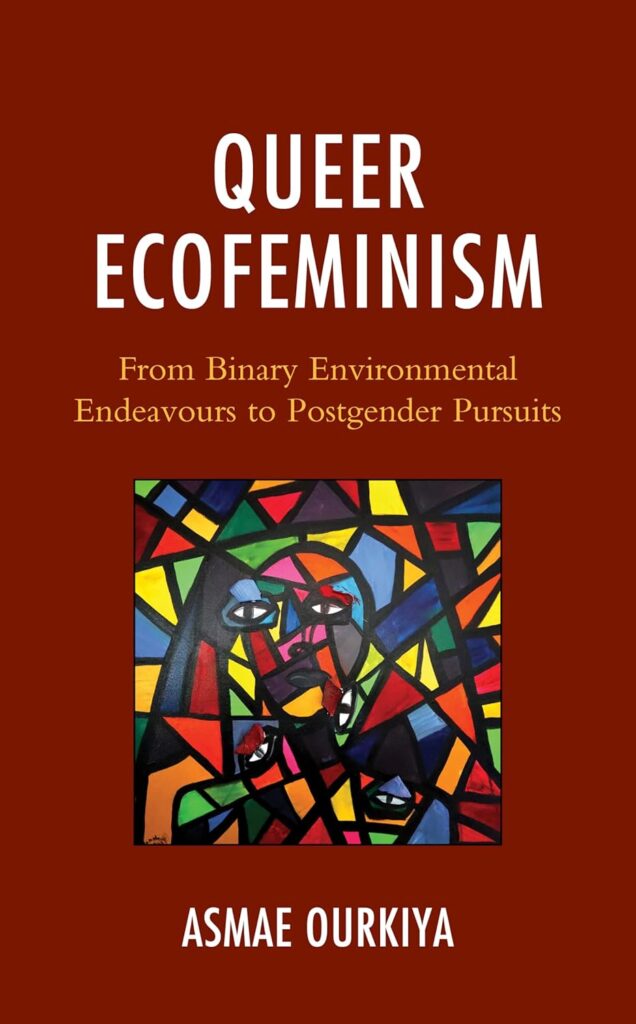
Queer Ecofeminism : From Binary Environmental Endeavours to Postgender Pursuits
by Asmae Ourkiya
Queer Ecofeminism: From Binary Environmental Endeavours to Postgender Pursuits navigates environmental politics by revisiting ecofeminism through an intersectional lens that enmeshes climate justice with matters revolving around sexuality, gender, race, and far-right politics. Asmae Ourkiya focuses on deconstructing essentialised conceptualisations of femininities, masculinities, and gender identities and reintroduces humanity as a species with much potential that is yet to be unlocked if only “biological sex”, skin color, and indigeneity would not be classist factors shaping humans into hierarchical classes. This work draws from analyzing a diverse and carefully chosen selection of artwork, film productions, and historical events to showcase the potency of ecofeminism.
Book descriptions based on publisher information


